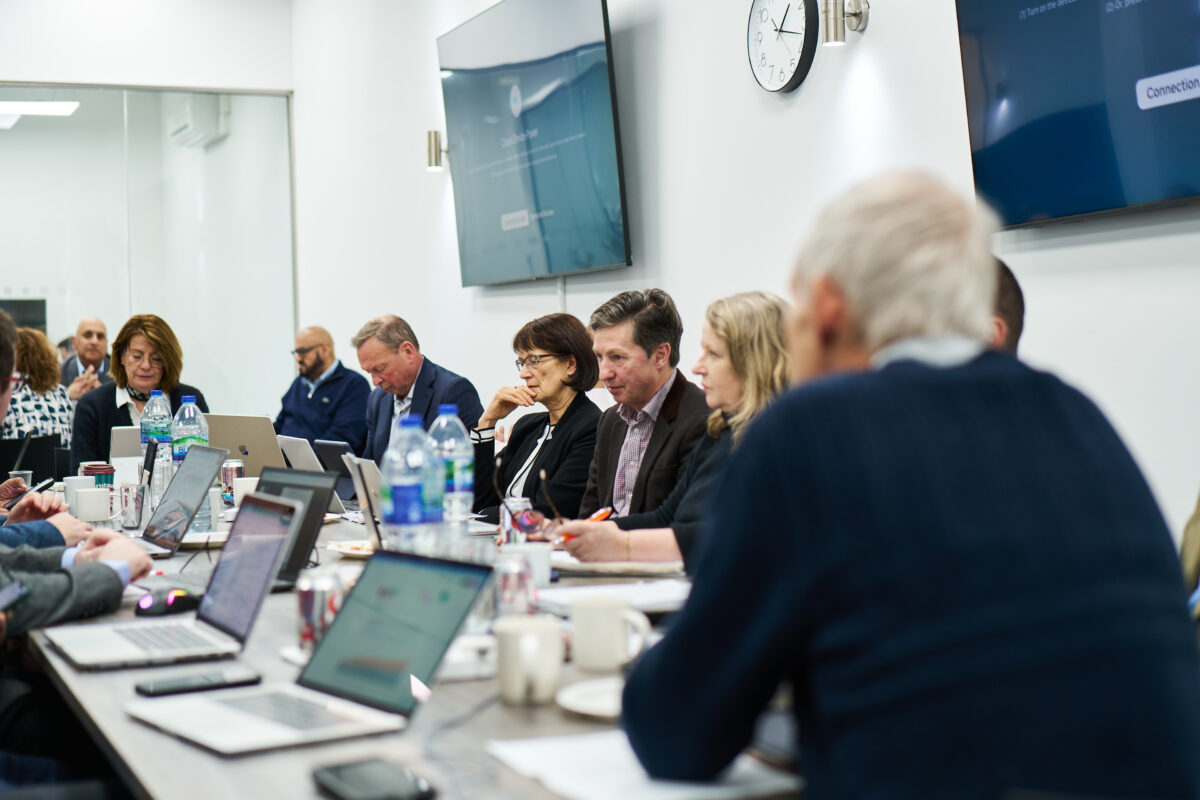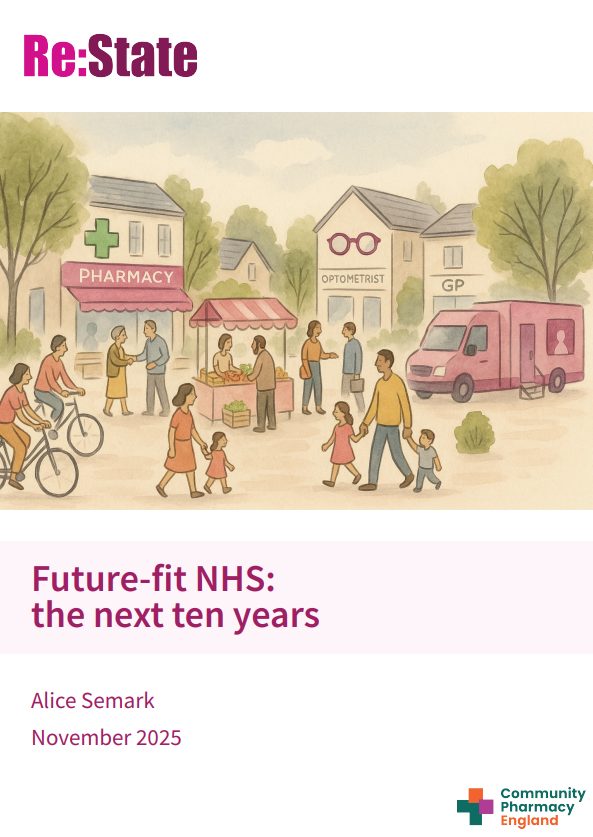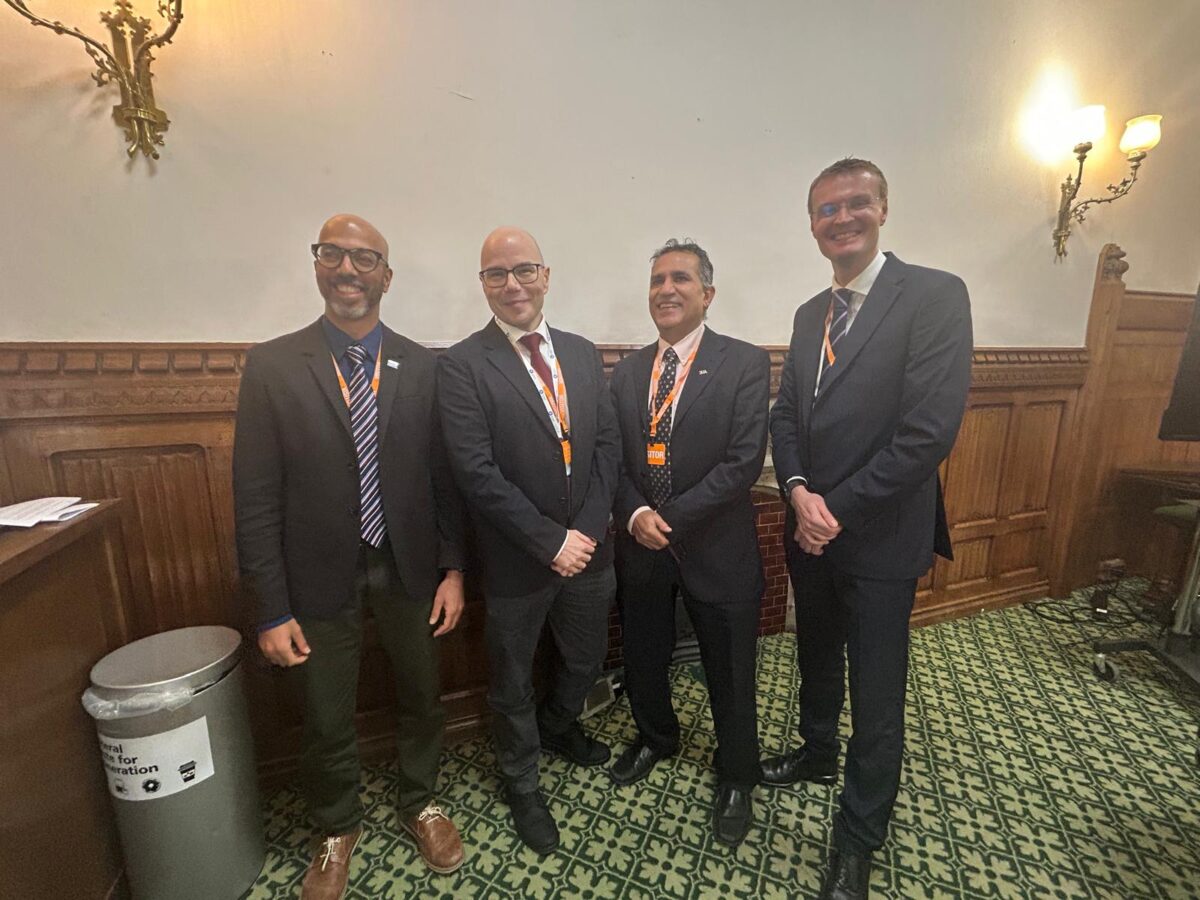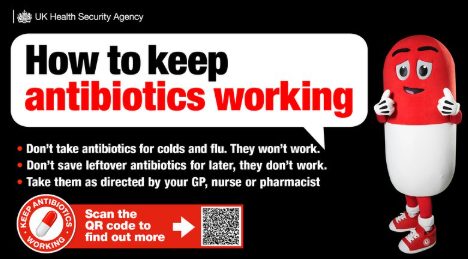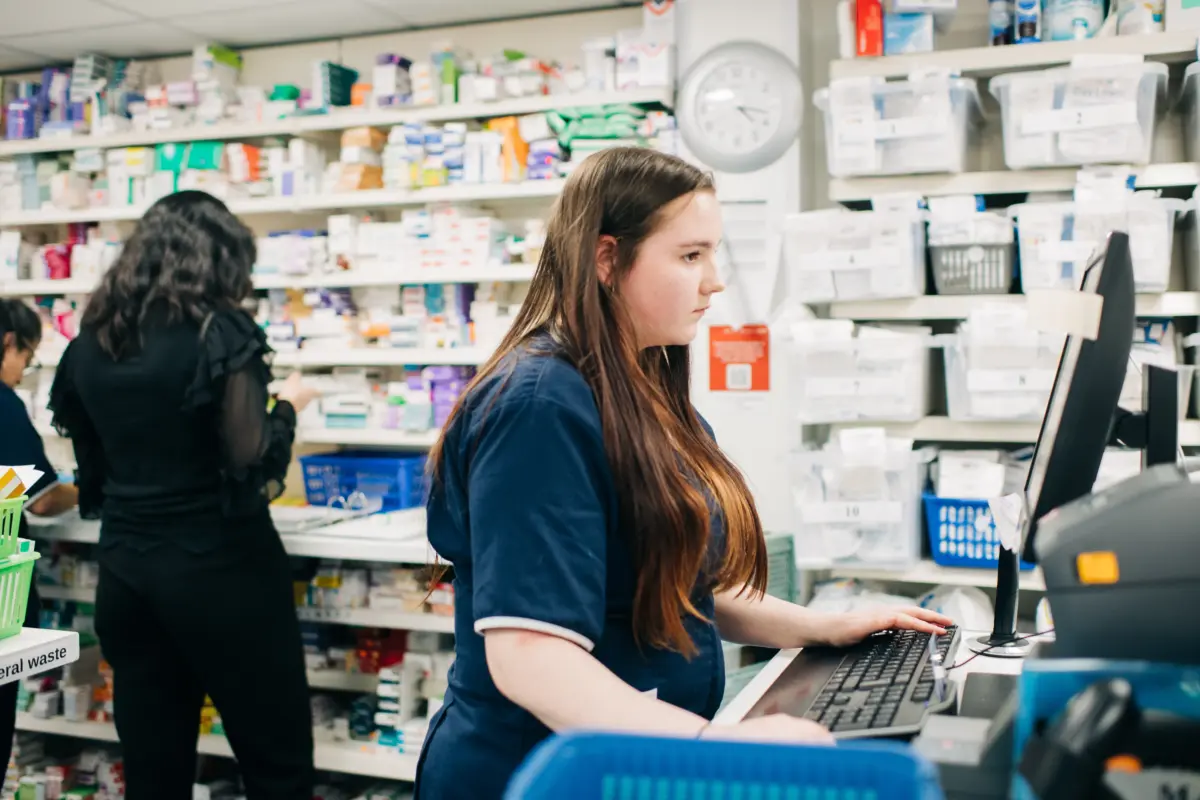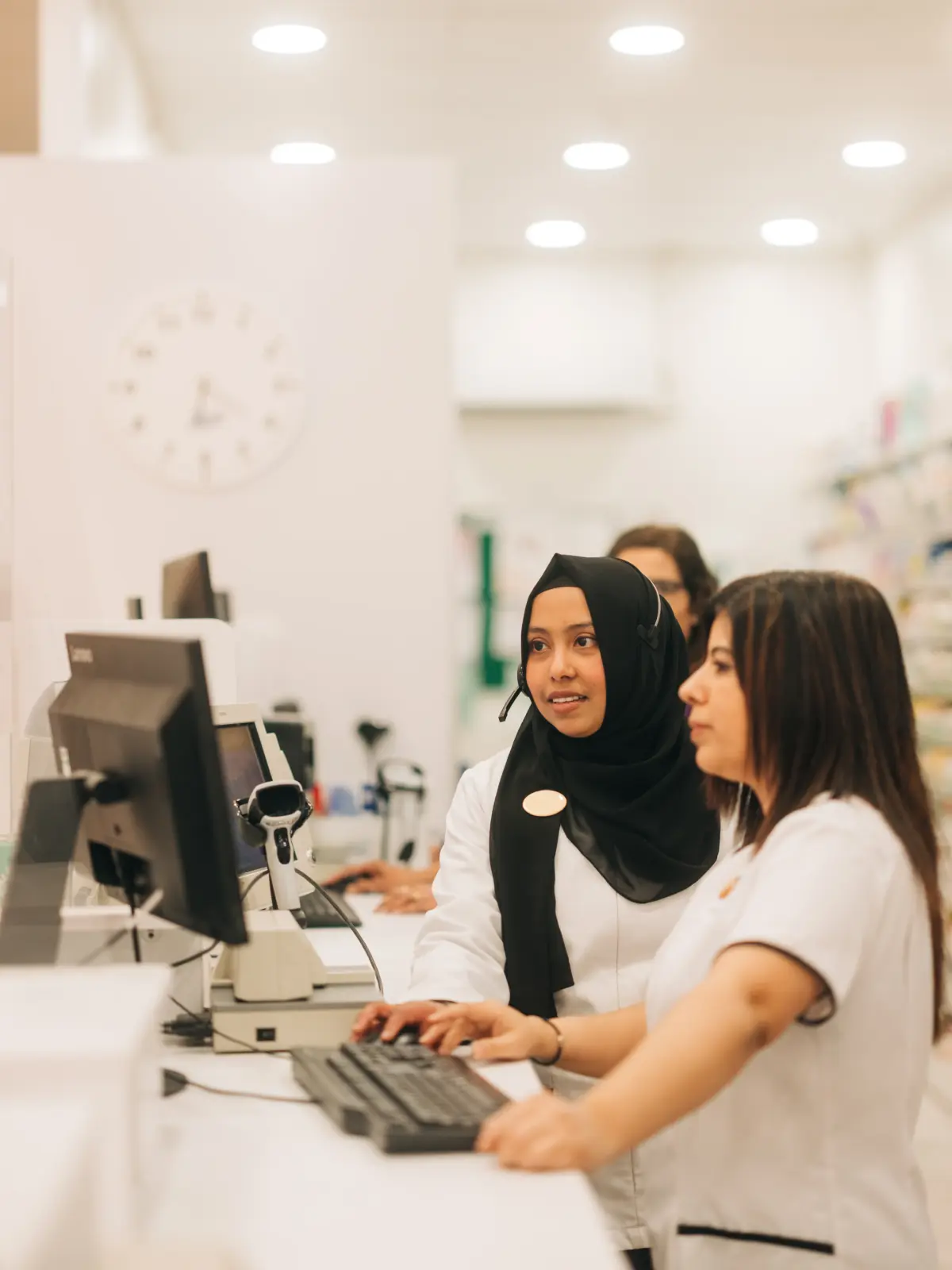New Medicine Service (NMS)
Published on: 18th June 2013 | Updated on: 17th November 2025
This webpage provides information on the New Medicine Service (NMS), which commenced on 1st October 2011. NMS was the fourth Advanced Service to be added to the Community Pharmacy Contractual Framework (CPCF).
The service provides support for people with long-term conditions newly prescribed a medicine to help improve medicines adherence; it is focused on specific patient groups and conditions.
Long planned changes to the NMS went live on 29th October 2025. The main changes to the NMS were:
- It expanded to include depression as an eligible therapeutic area. This is reflected in the updated service specification and NMS Eligible Drug List.
There is no mandatory training related to the addition of depression to NMS, but a related training programme on consulting with people with mental health problems is included in the Pharmacy Quality Scheme for 2025/26. - Wording in the service specification regarding the timing of Intervention and Follow up consultations was amended, so the Intervention consultation is provided between 7-14 days after recruitment and the Follow up consultation is between 14-21 days after the Intervention consultation.
The previous wording said consultations would ‘typically take place between those time periods’.
There is, however, also an ability for the pharmacist to agree consultations outside those periods on an exceptional basis, e.g. if a patient is on holiday. - The service specification has been amended to include the clarification on subcontracting of the service not being allowed, which was highlighted to all pharmacy owners at the time of the CPCF settlement announcement in March. See further information on this below.
Draft versions of the updated service documents had been available on the NHSBSA website since August to provide advance notice of the changes to the service for pharmacy owners and their teams. The final version of the service specification (version 2.0) is published on the NHS website.
Click on a heading below for more information
The policy context for the service
In England, around 15 million people have a long-term condition (LTC) and the optimal use of appropriately prescribed medicines is vital to the management of most LTCs. However, reviews conducted across different disease states and different countries are consistent in estimating that between 30 and 50% of prescribed medicines are not taken as recommended. This represents a failure to translate the technological benefits of new medicines into health gain for individuals. Sub-optimal medicines use can lead to inadequate management of the LTC and a cost to the patient, the NHS and society.
It is therefore clear that non-adherence to appropriately prescribed medicines is a global health problem of major relevance to the NHS. It has been suggested that increasing the effectiveness of adherence interventions may have a far greater impact on the health of the population than any improvement in specific medical treatments.
Non-adherence is often a hidden problem, undisclosed by patients and unrecognised by prescribers. People make decisions about the medicines they are prescribed and whether they are going to take them very soon after being prescribed the new medicine.
Research has shown that pharmacists can successfully intervene when a medicine is newly prescribed, with repeated follow up in the short term, to increase effective medicine taking for the treatment of a long-term condition.
Service description
The service provides support to people who are newly prescribed a medicine to manage a LTC, which will generally help them to appropriately improve their medication adherence and enhance self-management of the LTC. Specific conditions/medicines are covered by the service, which are detailed below.
The service is split into three stages, which are:
- patient engagement;
- intervention; and
- follow up.
Patient engagement – Following the prescribing of a new medicine for the management of a LTC, patients will be recruited to the service by prescriber referral (which could include referral for medicines prescribed to the patient as a hospital inpatient or outpatient) or opportunistically by the community pharmacy staff.
The new medicine will be dispensed as usual, with the provision of advice about its use and the patient will be offered the opportunity to use the NMS. Where there is acceptance of the offer, the pharmacy staff and patient will agree a method and time for the Intervention stage, between seven and 14 days after patient engagement.
Intervention – The pharmacist and patient will have a discussion either face-to-face in the pharmacy’s consultation room or alternatively via telephone or video consultation. The pharmacist will assess the patient’s adherence to the medicine(s), identify problems and determine the patient’s need for further information and support. The NMS intervention interview schedule will normally be used to guide this conversation.
The pharmacist will provide advice and further support and where no problems have been identified, will agree a time for the follow up stage, between 14 and 21 days after the intervention stage. This is similarly the case, where problems have been identified, but the pharmacist and patient have agreed actions which may address the issues, without the need to discuss these with the patient’s prescriber.
If problems are identified and it is the clinical judgement of the pharmacist that intervention by the patient’s prescriber is required, the issue will be referred to them to consider.
Follow up – The pharmacist and patient will again have a discussion either face-to-face in the pharmacy’s consultation room or alternatively via telephone or video consultation. The pharmacist will assess the patient’s adherence to the medicine(s), identify problems and determine the patient’s need for further information and support. The NMS follow up interview schedule will normally be used to guide this conversation. The pharmacist will provide advice and further support where necessary. If a problem is identified, the pharmacist and patients will either agree a solution or, where necessary, the patient will be referred to their prescriber to consider the matter.
All stages of the service provide an opportunity for healthy living advice to be provided, as appropriate to the individual.
The service requirements are included in the service specification.
Consultation room
Pharmacies must have a consultation room that will be used for the provision of the service which meets the requirements of the terms of service.
Where pharmacy premises are too small for a consultation room to be included, the pharmacy owner must apply to their NHS England regional team to request an exemption from this requirement using the published form (NHS England – Pharmacy regulations guidance forms). NHS England will consider the information provided by the pharmacy owner and where it is of the opinion that the pharmacy is too small for a consultation room, it will confirm this with the pharmacy owner and grant an exemption.
The pharmacy owner must then ensure that they put arrangements in place at the pharmacy which enable staff and patients to communicate confidentially by telephone or another live audio link and a live video link.
Where NHS England have agreed an exemption from the requirement of a consultation room and the pharmacy owner has met the additional arrangements to facilitates confidential conversations with patients, then the pharmacy owner can instead provide the service remotely or in the patient’s home.
Pharmacy owners are advised to keep a copy of the NHS England decision confirming that the pharmacy is exempt from the requirement of having a consultation room on the premises.
Where NHS England are of the opinion that the pharmacy is not too small for a consultation room, the pharmacy owner will be advised of this and they will need to install a consultation room if they intend to provide the service.
Standard Operating Procedure
Pharmacy owners must have a Standard Operating Procedure (SOP) for the service, which all staff participating in provision of the service must be familiar with and follow.
Competency and training requirements
3) Pharmacists that will provide the service must have the necessary knowledge and skills to do so, with them assessing and declaring their competence by completing and signing the NHS self-assessment form.
NMS self-assessment form (June 2020) (Microsoft Word)
NMS self-assessment form (June 2020) (PDF)
The completed form should be retained by the pharmacy owner.
The Centre for Pharmacy Postgraduate Education (CPPE) has a range of NMS learning materials which are available for pharmacists to develop their knowledge and skills; these can be accessed via the CPPE NMS webpage.
Signing up to provide the service
Having met the above requirements, pharmacy owners must then inform their local NHS contract management team of their intention to provide the service; this notification must be made using the NMS Pharmacy owner declaration form, which should be emailed to the local NHS contract management team:
NMS Pharmacy owner declaration Form (Microsoft Word)
Patients eligible for the service and the NMS medicines list
From 29th October 2025, the following conditions are covered by the service:
- Asthma and COPD
- Diabetes (Type 2)
- Hypertension
- Hypercholesterolaemia
- Osteoporosis
- Gout
- Glaucoma
- Epilepsy
- Parkinson’s disease
- Urinary incontinence/retention
- Heart failure
- Acute coronary syndromes
- Atrial fibrillation
- Long term risks of venous thromboembolism/embolism
- Stroke / transient ischemic attack
- Coronary heart disease
- Depression (only those ≥18 years of age)
Download a List of the NMS conditions
The NHS Business Services Authority (NHSBSA) has published the list of medicines that are suitable for NMS.
If a patient has been newly prescribed one of these medicines, they will be eligible to receive the service, subject to the pharmacist being able to determine that the medicine is being used to treat one of the above conditions in circumstances where a medicine can be used to treat multiple conditions.
It is not generally appropriate for the service to be provided where there has been a formulation change. The rationale for this is that a change from one solid dosage form to another is unlikely to present major clinical issues for a patient and hence provision of the NMS in such circumstances would not provide value to the NHS.
However, there may be circumstances, where in the professional opinion of the pharmacist, they believe the patient would benefit from the provision of the NMS where they are moving from one formulation of a medicine to another (for example the prescribing of the same inhaled medicine, but in a different inhaler device from that previously used by the patient).
Resources for patients before providing the service
The service specification requires information on the NMS to be given to the patient; this requirement may be fulfilled by providing a leaflet to the patient.
NMS patient leaflet (Microsoft Word)
NMS patient leaflet (PDF)
If an NMS item is dispensed for a patient, but the medicine is being delivered to the patient, or a representative is collecting the prescription, the following template leaflet may be used to offer the NMS to the patient:
Template NMS patient leaflet for use when the patient is not present in the pharmacy (Microsoft Word)
Template NMS patient leaflet for use when the patient is not present in the pharmacy (PDF)
Further guidance on creating your own patient communication materials can be found on the Communicating with patients page.
Providing the service
NMS consultations provided in the pharmacy will be undertaken in the consultation room. Alternatively, consultations can be undertaken by telephone or video consultation, where the patient has previously consented to this and it is clinically appropriate.
A pharmacist providing the NMS by telephone or video consultation can do so from the pharmacy premises or from another location, e.g. a pharmacist who is working from home.
In all circumstances where, with the patient’s prior consent, telephone or video consultations are used to provide parts of the NMS, the pharmacist must undertake the consultation in an environment where the conversation cannot be overheard by others (except by someone whom the patient wants to hear the conversation, for example a carer).
Pharmacy owners can also provide the NMS in patients’ homes, but they must ensure appropriate safeguarding arrangements are in place, including ensuring pharmacists have a valid DBS certificate, and there are appropriate procedures and indemnity arrangements in place.
Patient consent
Prior to provision of the service, verbal consent must be sought from the patient and a record of that made in the pharmacy’s clinical record for the service. In seeking consent, pharmacy owners need to ensure that the patient is made aware that the consent enables:
- The provision of the service;
- The sharing of information between the pharmacy and the patient’s GP practice if needed, to enable the provision of appropriate care;
- The sharing of information about the service with NHS England as part of service monitoring; and
- The sharing of information about the service with NHS England and the NHS Business Services Authority (NHSBSA) as part of post-payment verification (PPV).
The General Pharmaceutical Council’s Guidance on Consent provides information on consent for pharmacists and their teams.
The consultations with the patient – using the NMS interview schedule
The NMS interview schedule should be used by pharmacists to help shape the conversation they have with patients at the intervention and follow up stages of the service. The interview is based on the approach used in the proof of concept research and members of the original research team helped to design it.
Interview schedule without notes
Record keeping requirements
Pharmacists providing the service must make records to support ongoing provision of the service to patients, their future care and audit of the service. The records must be kept for at least three years from the date on which the service is completed or discontinued.
The minimum requirements for record keeping are detailed in the service specification. If you do not have access to a computer in the consultation room, or do not wish to use it during your discussion with the patient, the following NMS Worksheets can be used to record notes during the Intervention and Follow up stages of the service and then summarise your discussion with the patient (to support the creation of summary data for submission to the NHSBSA).
Referring patients to their GP practice
There may be occasions during the provision of the NMS when pharmacists will need to refer patients to their GP practice, where an issue has arisen that cannot be solved by the pharmacist and patient.
In these circumstances pharmacists can use the NMS GP Feedback form to communicate with the GP practice.
NMS GP Feedback Form (Microsoft Word)
NMS GP Feedback Form (PDF)
It is best practice to phone the GP practice where a referral is urgently required, following this up by sending a copy of the NMS GP Feedback Form to the GP practice.
Where the information to be fed back to the GP practice is less urgent, the form should be sent to the practice, with the patient being advised that the GP practice will contact them about the information in the NMS Feedback form where necessary.
Community Pharmacy England is sometimes contacted by pharmacy owners or LPCs because local GPs have queried the wording in the NMS Feedback form which puts the responsibility to follow up with the patient on the GP practice, rather than the patient being asked to make an appointment with their GP. The NMS Feedback Form was designed by Community Pharmacy England, the GP Committee (GPC) of the British Medical Association and NHS Employers and the wording regarding referral back to the GP practice was proposed by the practising GPs representing the GPC.
The rationale for this approach is that it allows the GP practice to deal with the issue as they see fit, which may require an appointment with the patient’s usual GP, or it may involve another practice team member, such as a practice nurse, dealing with the query. It also provides flexibility for the GP practice to manage the issue by telephoning the patient if that is deemed an appropriate alternative to an appointment in the practice. The GPC view was that this approach provided more flexibility for practices to manage queries in the best way for their patients and using the full range of skills within their team, rather than requiring all queries to be dealt with via a face to face appointment with a GP.
Working with PCN clinical pharmacists
The development of Primary Care Networks (PCNs) has resulted in the employment of clinical pharmacists within PCNs, based at general practices; in many cases the clinical pharmacist may be able to assist the community pharmacist and patient with the matter identified during the NMS.
NHS guidance for PCNs on the provision of Structured Medication Reviews includes referrals being made to the patient’s community pharmacy for provision of the NMS.
The guidance outlines how PCNs should work with community pharmacies to connect patients appropriately to the NMS.
NHS England and IT system suppliers are working on the development of NHS-approved IT systems for recording NMS consultations and sharing data with the NHSBSA.
This work has already been completed for several of the Advanced services, with the development of application programming interfaces (API) between pharmacy IT systems and the NHSBSA’s Manage Your Service (MYS) portal.
Changes also need to be made to NHSBSA systems before data being sent from approved pharmacy clinical IT systems via the API to MYS can be used to populate end of month claims for NMS provisions.
Once that work at the NHSBSA is completed, pharmacy owners providing the NMS will need to use an approved clinical IT system to keep their clinical records for the service and to submit data on the provision of the service and payment claims to MYS. At that time, the current manual MYS claim process for the service will be retired.
Notice of this change will be communicated to pharmacy owners in advance, once a target go-live date has been set.
However, until that time, pharmacy owners can choose to use one of the approved pharmacy clinical IT systems (once available) to maintain their clinical records and voluntarily provide data on the provision of NMS via the MYS API.
Alternatively, they can continue to use other NMS records systems, for example in their PMR system.
Find out more about which IT systems are developing updated modules for NMS
Further information on clinical services IT systems and APIs: CPCF clinical services IT requirements
Pharmacy owners are not permitted to use sub-contracting arrangements at a location other than the pharmacy premises for the service to be provided on their behalf.
If the service is provided off the pharmacy premises, the pharmacist providing the service:
- must be employed directly by the pharmacy, or a company in the same group* as the pharmacy
- must have access to the records of the patient that are held by or are accessible by the pharmacy, which are required to provide the service safely and effectively
*A group is defined here as a parent undertaking and its subsidiary undertakings as defined in the Companies Act 2006
When did the changes occur?
The changes were implemented by Secretary of State Directions and they came into effect on 29th October 2025.
What’s happened with the subcontracting of NMS?
Changes were made to Service Directions to clarify that NMS may not be provided via a remote consultation with the patient by a pharmacist working off the pharmacy premises who is not employed by the pharmacy owner.
Why is subcontracting of NMS an issue?
The pharmacy owner and the pharmacy premises, from which services are usually provided, are approved and listed, subject to assurance measures, and have ongoing commitments that are part of their NHS Terms of Service.
Generally, if a service is subcontracted by the original contract holder, this results in provision of the service by a different legal entity, often at different premises and, if permitted in the original contract, is usually subject to regulatory controls.
There is no provision for the subcontracting of the NMS service and, accordingly, no controls had been put in place for such subcontracting. Any such controls would be likely to include provisions for:
- The transfer of patient information to another legal entity (to the separate legal entity with which the pharmacy is subcontracting); and
- The retention of records by the pharmacy owner (the contractor) and ensure they are available at the pharmacy premises.
Where the provision of a service is by a different legal entity at different premises, this bypasses the listed and commissioned pharmacy owner and questions whether the subcontracting party should be commissioned directly.
How is NHS community pharmacy provision controlled and regulated?
The control and regulation of NHS community pharmacies includes:
- An application procedure with the provision of fitness information for the owner pharmacist or pharmacist directors of the relevant company and superintendent pharmacist.
- The pharmacy owner and the pharmacy premises are listed on the local pharmaceutical list (or the national consolidated pharmaceutical list).
- The pharmacy must comply with the ongoing Terms of Service and clinical requirements, and the listed pharmacy premises can be inspected.
- There is a system of performance measures which include dispute resolution, remedial and breach notices, withholding of remuneration, post-payment verification, and, in rare cases, removal from the list.
Can pharmacies continue to provide NMS remotely offsite?
Yes. A pharmacist providing NMS by telephone or video consultation can do so from the pharmacy premises or from another location, e.g. a pharmacist employed by the pharmacy who is working from home.
In all circumstances where, with the patient’s prior consent, telephone or video consultations are used to provide parts of the NMS, the pharmacist must undertake the consultation in an environment where the conversation cannot be overheard by others (except by someone whom the patient wants to hear the conversation, for example a carer).
Pharmacy owners can also provide NMS in patients’ homes, but they must ensure appropriate safeguarding arrangements are in place, including ensuring pharmacists have a valid DBS certificate, and there are appropriate procedures and indemnity arrangements in place.
Note: there are new/additional requirements for pharmacists to have a valid DBS certificate within the 2025/26 PQS.
If NMS can be provided off-site, surely it be provided by a different legal entity?
No, the discretion for off-site provision of NMS was introduced during the COVID-19 pandemic to allow pharmacist staff who were required or needed to stay at home, for example, because they were shielding, to provide NMS from home. There was no provision or discretion given for the service to be subcontracted to a separate legal entity.
May locums provide NMS when working at the pharmacy premises?
Yes. Locums can provide NMS when working at the pharmacy premises (where the pharmacy has signed up to deliver the service).
Pharmacy owners claim payments by stating on their monthly FP34C submission, on the MYS portal, the number of completed NMS they have undertaken in a given month. Claims for payment must be submitted via the MYS portal by the 5th day of the month following the month in which the service was provided.
Changes to the NMS payment structure and fees in April 2025
As part of the contractual settlement for 2025/26 it was agreed that from 1st April 2025, the payment structure for NMS would be simplified to a £14 fee for each Intervention or Follow up consultation provided to the patient, i.e. a total fee of £28 will be paid if the pharmacy has undertaken both the Intervention and Follow up consultations.
This change to the funding structure does not change the existing service requirement to undertake the Intervention consultation and to try to contact the patient to undertake the Follow up consultation.
A £14 payment can only be claimed if a consultation has been undertaken with the patient.
If the patient cannot be contacted by the pharmacy to undertake a consultation, the fee for that consultation cannot be claimed.
For example, two £14 fees can be claimed in the end of month MYS claim once the Intervention consultation and Follow up consultation have been provided to the patient.
Similarly, one £14 fee can be claimed in the end of month MYS claim if the Intervention consultation has been provided and the pharmacy tries, but fails to contact the patient for the Follow up consultation (which does not take place and hence can’t be claimed for).
Resource: New Medicine Service – when are payments claimable?
When can I include an NMS provision in my claim?
The fee or fees for the provision of NMS consultations for an individual patient can be claimed for in the MYS claim for the month in which the consultation was provided.
If the provision of the service straddles two months, for example May and June, the claim for the Intervention consultation provided in May can be claimed in the MYS claim relating to May. The Follow up consultation provided in June should be claimed in the MYS claim relating to June.
Making your end of month claim
There was no change to the timelines for making a claim for NMS: pharmacy owners must claim payments by stating within the MYS portal, the number of completed NMS they have undertaken in a given month, with claims for payment being submitted by the 5th day of the month following the month in which the service was provided.
Later in 2025, the NHSBSA will amend the MYS module which pharmacy owners use to claim for their provision of NMS to allow the number of Intervention consultations and Follow up consultations to be separately entered.
Until that change is made to MYS and starting with claims for NMS provided in April 2025, pharmacy owners need to claim the total number of Intervention consultations and Follow up consultations they have provided in the month. For example:
Number of completed Intervention consultations 20
Number of completed Follow up consultations 11
Number of NMS provisions to be claimed in the MYS module 31
Once the NHSBSA have updated the MYS module, pharmacy owners will be able to separately report on the number of Intervention consultation and Follow up consultations, with the NHSBSA making payment based on the total number of each. We will alert pharmacy owners ahead of that change to MYS taking place.
Cap on payments for NMS
The number of NMS consultations that each pharmacy will be paid for is subject to an overall cap of 1% of their monthly prescriptions, set out in the table below (taken from the April 2025 Drug Tariff). The numbers in the previous version of the table (within the Drug Tariff) have been doubled to allow both types of consultations to be claimed using the current MYS functionality as an interim measure.
| Volume of prescription items per month | Combined maximum number of Intervention and Follow up consultations per month for which £14 will be received |
| 0-1500 | 20 |
| 1501-2500 | 40 |
| 2501-3500 | 60 |
| 3501-4500 | 80 |
| 4501-5500 | 100 |
| 5501-6500 | 120 |
| 6501-7500 | 140 |
| 7501-8500 | 160 |
| 8501-9500 | 180 |
| 9501-10500 | 200 |
| +1000 | (+20) |
Post-payment verification
Further information on post-payment verification of NMS can be found on our Post-payment verification process for community pharmacy services and activity page.
Resources for pharmacy owners
NMS Pharmacy owner declaration Form (Microsoft Word)
NMS Pharmacy owner declaration form (PDF)
Resources for pharmacists
NMS self-assessment form (June 2020) (Microsoft Word)
NMS self-assessment form (June 2020) (PDF)
Information for pharmacy teams
List of the NMS conditions
Resources to use during consultations
Interview schedule without notes
Coding to be used to record the ethnic group of people
NMS GP Feedback Form (Microsoft Word)
NMS GP Feedback Form (PDF)
Promotion of the service to patients
NMS patient leaflet (Microsoft Word)
NMS patient leaflet (PDF)
Template NMS patient leaflet for use when the patient is not present in the pharmacy (Microsoft Word)
Template NMS patient leaflet for use when the patient is not present in the pharmacy (PDF)
Other resources
For patients on medicines for osteoporosis
The Royal Osteoporosis Society (ROS) has a BoneMed online service, a free service to supports patients taking medicines for osteoporosis and remove barriers to medicines adherence.
After a five minute online survey, patients receive an online medicine summary and six emails over a year tailored to the medicine they’ve been prescribed. Topics covered include:
- Why they’ve been offered an osteoporosis medicine
- How to take their medicine
- Fitting their medicine into their routine
- Possible side effects.
A digital support pack is available on the ROS website to introduce the service, the benefits and FAQs on the service. Business cards are also available to order that can be given to patients to help them find out more information and sign up to the free BoneMed online service.
Patients on medicines for osteoporosis who consent for NMS could be advised about the free service during their NMS consultation, as well as those patients who are dispensed osteoporosis medicines.
Community Pharmacy England clinical service statistics dashboard
The dashboard presents data on the NMS (as well as other Advanced services) at three levels (national, LPC and individual pharmacy) for each quarter. The dashboards are based on the NHS Business Services Authority’s (NHSBSA) Dispensing contractors’ data.
NHSBSA Dispensing contractors’ data
Data on the NMS (as well as other Advanced services) can be found by clicking on the ‘Pharmacy and appliance contractor dispensing data’ dropdown tab.
At Community Pharmacy England, we are always keen to hear from pharmacy owners and their teams about how the provision of national pharmacy services is going, be that niggles with the way services are commissioned, a success story you want to share or something else.
Please click on the link below to share a success story where you have helped achieve a good outcome for a patient following a consultation for a national pharmacy service or to provide feedback on one of the services.
For more information on this topic please email services.team@cpe.org.uk


